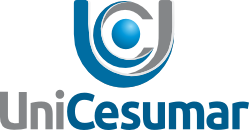Infantile Depression, Success at School and Self-Efficiency: A Literature Review
Keywords:
Infantile Depression, Self-Efficiency, Success at School.
Abstract
Depression may affect the children’s life, and, nowadays, this subject has gained more attention, due to the effects it has on their academic life. We aim at identifying, among the indexed literature, articles and scientific books that deal with the relation between the infantile depression, the idea that children make of their own self-efficiency in order to perform certain activities and the success at school. The selection of articles was carried out using LILACS, Scielo, and books from university libraries, published within the period from 1993 to 2008. It was possible to notice that, as a consequence of infantile depression, there may be damage on emotional, cognitive and social functions areas. The main symptoms are difficulty in concentrating, feeling of inutility, sensation of excessive culpability, decrease in satisfaction and interest, lack of emotional expression, decrease in motivation, exhaustion. The reduction of success at school may be considered a meaningful symptom of this disorder. The mechanism through which infantile depression affects the success at school includes a process in which the self-efficiency belief is damaged, i.e., when children are on a depressing process, they cannot believe in their own capacity, tending to present low academic efficiency, and then the depression may become even worse. The study shows the necessity of more empiric research, which allows the evaluation of individual and environmental factors associated to depression along the children’s development. Such research is an important step for elucidating the care and the recommendations that are relevant for planning intervention programs.
Published
2010-08-16
Section
Artigos Originais
A Revista se reserva o direito de efetuar, nos originais, alterações de ordem normativa, ortográfica e gramatical, com o intuito de manter o padrão culto da língua, respeitando, porém, o estilo dos autores. As opiniões emitidas pelos autores são de sua exclusiva responsabilidade.
Os direitos autorais pertencem exclusivamente aos autores. Os direitos de licenciamento utilizado pelo periódico é a licença Creative Commons Attribution Creative Commons Atribuição 4.0 Internacional. São permitidos o compartilhamento (cópia e distribuição do material em qualquer meio ou formato) e adaptação (remixar, transformar, e criar a partir do trabalho, mesmo para fins comerciais), desde que lhe atribuam o devido crédito pela criação original.
Creative Commons Atribuição 4.0 Internacional. São permitidos o compartilhamento (cópia e distribuição do material em qualquer meio ou formato) e adaptação (remixar, transformar, e criar a partir do trabalho, mesmo para fins comerciais), desde que lhe atribuam o devido crédito pela criação original.
Os direitos autorais pertencem exclusivamente aos autores. Os direitos de licenciamento utilizado pelo periódico é a licença Creative Commons Attribution
 Creative Commons Atribuição 4.0 Internacional. São permitidos o compartilhamento (cópia e distribuição do material em qualquer meio ou formato) e adaptação (remixar, transformar, e criar a partir do trabalho, mesmo para fins comerciais), desde que lhe atribuam o devido crédito pela criação original.
Creative Commons Atribuição 4.0 Internacional. São permitidos o compartilhamento (cópia e distribuição do material em qualquer meio ou formato) e adaptação (remixar, transformar, e criar a partir do trabalho, mesmo para fins comerciais), desde que lhe atribuam o devido crédito pela criação original.

